Advisory Committee on Ethics – Biographies
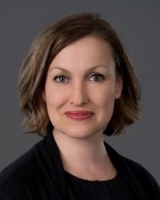
Rhonda Kropp (co-chair)
Associate Vice-President Research – Strategy, CIHR
Rhonda Kropp is Associate Vice-President Research – Strategy. In this role, Rhonda provides executive leadership and direction of all science-related strategy and policy thinking and development, evidence-integration and knowledge mobilization. She is also responsible for the design of a comprehensive suite of programs and initiatives to support the CIHR mandate aimed at growing and maintaining a strong and sustained capacity in the Canadian research community, advancing equity, diversity and inclusion in Canada's research agenda and supporting open science and data initiatives.
Before joining CIHR, Rhonda held several senior executive positions in the federal public service in Health Canada, Statistics Canada and the Public Health Agency of Canada (PHAC). Most recently, she launched a Corporate Data and Surveillance Branch at PHAC, leading efforts to optimize the collection, use and sharing of health data in Canada, and support advancements in Canada's ability to detect, understand and act on health threats. Rhonda is the proud recipient of the Chief Public Health Officer of Canada Medal for exceptional service in public health.
Rhonda worked in microbiology and paediatric oncology nursing before undertaking public health graduate studies at the University of California, Berkeley. She undertook health research for the California Offices of AIDS and Sexually Transmitted Diseases, Stanford University, and the University of California, San Francisco before joining Canada's public service in 2003.
Rhonda has a strong commitment to the optimal mobilization of knowledge to action and to the involvement of impacted and interested parties in Canada's health research landscape.

Dr. Aliya Kassam (co-chair)
Associate Professor in the Department of Community Health Sciences at the Cumming School of Medicine, University of Calgary
Dr. Aliya Kassam is an Associate Professor in the Department of Community Health Sciences at the Cumming School of Medicine (CSM), University of Calgary. Dr. Kassam is interested in ethical issues that arise from the intersections of health professions education and health care. She has an undergraduate honours degree in psychology and a master’s degree in epidemiology specializing in psychiatric epidemiology. She completed her doctoral training in Health Services Research at the Institute of Psychiatry, Psychology & Neuroscience, King’s College London (London, England). For her doctoral thesis, Dr. Kassam studied under the supervision of British psychiatrist Sir Graham Thornicroft, a world-renown mental illness stigma expert. She studied how best to reduce the stigma endured by people with mental illness when seeking health care.
Upon completion of her PhD, Dr. Kassam joined the Mental Health Commission of Canada’s Opening Minds initiative as a post-doctoral fellow. During her fellowship Dr. Kassam developed the Opening Minds Scale for health care providers (OMS-HC) a scale used to measure attitudes of health care providers which has been used around the world. Dr. Kassam completed an additional master’s degree in ethics in 2022 examining ethical issues in residency education during the COVID-19 pandemic. Dr. Kassam is the Equity, Diversity, Inclusion and Accessibility (EDIA) lead for the O’Brien Institute for Public Health and is a passionate advocate for learners and patients alike. In her work, Dr. Kassam strives to improve the well-being of Canadians through health professions education and health services research while drawing on her own lived experience of stigma and discrimination.

Dr. Alice Virani
Director of the Clinical Ethics Service for the Provincial Health Service Authority of BC, Clinical Assistant Professor in the Department of Medical Genetics at the University of British Columbia
Alice Virani is the Director of the Clinical Ethics Service for the Provincial Health Service Authority of BC and a Clinical Assistant Professor in the Department of Medical Genetics at the University of British Columbia. Alice serves on the Inter Agency Advisory Panel on Research Ethics and the Public Health Ethics Consultative Group for the Public Health Agency of Canada. She also currently co-chairs BC’s Provincial Healthcare Ethics Advisory Team.
Alice’s research interests relate to genetic and genomic medicine, public health ethics and pediatric bioethics. She is currently involved in national research projects including the Canadian Collaboration for Child Health: Efficiency and Excellence in the Ethics Review of Research (CHEER) and Trustsphere Canada’s Digital Technology Supercluster, as well as BC based projects related to Moral Distress during the COVID 19 pandemic and Pediatric Transplantation.
Before moving into ethics, Alice was a genetic counselor in the Division of Maternal Fetal Medicine at Columbia University Medical Center in New York. She has a master’s in Human Sciences from Oxford University, a master’s in Genetic Counseling from Sarah Lawrence College, a master’s in Public Health from Columbia University, and a PhD in Genetics and Ethics from UBC.

Dr. Ann M. Heesters
Senior Director of Clinical and Organizational Ethics at the University Health Network, Assistant Professor at the Dalla Lana School of Public Health
Ann M. Heesters is the Senior Director of Clinical and Organizational Ethics at the University Health Network and an Assistant Professor at the Dalla Lana School of Public Health where she co-directs the capstone course in the MHSc program at University of Toronto’s Joint Centre for Bioethics. She has recently joined The Institute for Education Research (TIER) as a Clinical Investigator 2, and is an Academy Scholar at the Wilson Centre at University of Toronto where she looks forward to forging exciting new relationships and reuniting with her old love, Education, and Education Research.
Ann has practiced in the field of bioethics for more than twenty years and established ethics services in two Canadian provinces. Ann has an abiding interest professionalizing the work of health care ethicists and was a founding member of PHEEP (Practicing Healthcare Ethicists Exploring Professionalization) and an early director of CAPHE-ACESS (the Canadian Association of Practicing Healthcare Ethicists - Association canadienne des éthiciens en soins de santé). Her recent book, How Legal Theory Can Save the Life of Healthcare Ethics, is an exploration of ethics, objectivity, and conflict of interest in the context of a pluralistic society. Ann is a student of Philosophy and generally endorses Ronald Dworkin’s view that “Absolute confidence or clarity is the privilege of fools and fanatics.”
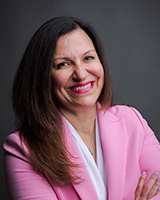
Dr. Cécile M. Bensimon
National Ethicist at Correctional Service Canada, Chair of the Research Ethics Board at the Children's Hospital of Eastern Ontario
Cécile M. Bensimon is the National Ethicist at Correctional Service Canada, Chair of the Research Ethics Board (REB) at the Children's Hospital of Eastern Ontario (CHEO), Vice-Chair of the Pharmaceutical Advertising Advisory Board (PAAB), and Governor for Canada and Vice-President, North America for the World Association for Medical Law (WAML). Cécile is a member of the Canadian Institutes of Health Research (CIHR) Advisory Committee on Ethics and the United States Pharmacopeia (USP) DEIB Expert Panel. She holds appointments as an Adjunct Professor at the University of Ottawa Faculty of Health Sciences and an Affiliate Investigator at Bruyère Health Research Institute. She is on the Editorial Board of the bilingual journal Canadian Journal of Bioethics and the journal Frontiers in Genetics, ELSI in Science and Genetics.
Cécile has served as an ethics expert to inform international, national, and provincial pandemic preparedness and response plans by advising the World Health Organization, Public Health Agency of Canada, Public Health Ontario, Ottawa Public Health, and regulatory medical authorities during the H1N1 pandemic and/or COVID-19 pandemic. During the COVID-19 pandemic, Cécile was a member of the Ontario Bioethics Table. Her publications have appeared in the British Journal of Psychiatry, Journal of the American College of Surgeons, Canadian Journal of Anaesthesia, Journal of Bioethical Inquiry, Public Health Ethics, and Social Science and Medicine.
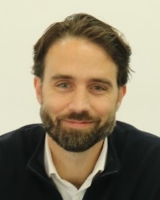
Dr. Charles Dupras
Assistant Professor and Director of the Bioethics Programs in the Department of Social and Preventive Medicine of the School of Public Health at the Université de Montréal
Charles Dupras, PhD, is an Assistant Professor and Director of the Bioethics Programs in the Department of Social and Preventive Medicine of the School of Public Health at the Université de Montréal. Professor Dupras has a multidisciplinary academic background encompassing biochemistry, health sciences, ethics, and public policy. Prior to his appointment at the Université de Montréal, he also held the role of Senior Advisor on Research Ethics for the Secretariat on Responsible Conduct of Research, serving the three federal funding agencies in Canada.
His research is fundamentally interdisciplinary and builds on the various theoretical and empirical tools of bioethics, namely, conceptual mapping, comparative policy analyses, case studies, surveys, interviews, and workshops, performing both quantitative and qualitative analyses. Professor Dupras has developed expertise on the ethical, legal, and social implications of genomics and the emerging field of epigenetics, and with mixed-method consultation approaches such as the Delphi method.
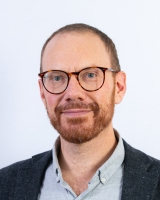
Dr. Daniel Buchman
Bioethicist and Scientist, Centre for Addiction and Mental Health
Associate Professor, Dalla Lana School of Public Health, University of Toronto
Dr. Daniel Buchman is a Bioethicist and Scientist at the Centre for Addiction and Mental Health (CAMH). He is also an Associate Professor in the Dalla Lana School of Public Health at the University of Toronto, a member of the University of Toronto Joint Centre for Bioethics, and an Affiliate Scientist in the Krembil Research Institute at the University Health Network.
The goal of his research program is to generate empirically grounded and philosophically rigorous bioethics knowledge to inform interprofessional healthcare education, practice, policy, and patient care. Dr. Buchman has established major research programs dedicated to the ethics of mental health, substance use, and chronic pain. His current projects explore ethical issues related to stigma, chronic pain, and neurotechnologies; palliative psychiatry; opioids; artificial intelligence and machine learning; and psychedelics. He is the recipient of a 2020 AMS Fellowship in Compassion and Artificial Intelligence and co-edited the book Pain Neuroethics and Bioethics (Academic Press, 2018).
Dr. Buchman has provided ethics advice at the institutional, provincial, and federal levels and has served on committees such as the Canadian Association of Practising Healthcare Ethicists (2015-2019), the Canadian Blood Services Bioethics Advisory Committee (2016-2018), and the Board of the Canadian Bioethics Society (2021-2023).
Dr. Buchman holds a BA from McGill University, a MSW from the University of Toronto, and a PhD in Interdisciplinary Studies (Bioethics/Neuroethics) from the University of British Columbia. He was a visiting scholar at the University of Queensland and completed fellowships in healthcare ethics consultation in acute care and community-based settings.
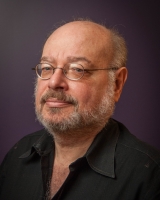
Dr. Jaime Flamenbaum
CIHR Senior Ethics Advisor
Jaime Flamenbaum specialized in emergency medicine in Brazil and later worked in HIV/AIDS prevention and care, parallel to a career in philosophy of science. Once in Canada, he earned a degree in Bioethics from the Faculty of Experimental Medicine of McGill University. After working as data analyst and bioethicist in the private sector, he joined CIHR as Senior Ethics Advisor in 2006, advancing files related to clinical research, emerging and disruptive technologies, and developing a project on ethics education for young investigators. He has publications in various ethics issues, including the interface Epistemology/Ethics.

Dr. Kristen Desjarlais-deKlerk
Associate Professor of Business and Administration at the University of Winnipeg
Kristen Desjarlais-deKlerk works as an Associate Professor of Business and Administration at the University of Winnipeg. Her research focuses on marginality, support, and health, but is driven by community needs. As a community engaged researcher, she aims to use research to advocate for marginalized and equity-seeking groups.
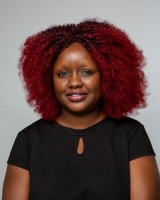
Dr. Elizabeth Ochola
Associate Researcher of Bioethics
Elizabeth Ochola is a global health researcher with 15 years of experience in infectious diseases, social and cultural determinants of health, stakeholder engagement and health policy. She holds a PhD in Geography (Health) from the University of Waterloo where her thesis examined the impact of structural inequities on the health and wellbeing of marginalized populations infected by Neglected Tropical Diseases (NTDs). Elizabeth also graduated with a Master of Science in Global Bioethics from Anáhuac University (México) and is currently an Associate Researcher of Bioethics examining vaccine ethics (vaccine inequity and hesitancy) and human enhancement technologies for persons with disabilities.
As an active participant in the health care community, Elizabeth has volunteered strategic support to equity-seeking groups such as the Canadian Pharmacists Association where she was a public representative during the development of the pharmacists scope that aimed to provide equitable delivery of pharmaceutical services to Canadians. She also served as a member of the Citizens’ Council for the Ontario Pharmacy Evidence Network (OPEN) in the advancement of patient-centred care and engagement in pharmaceutical practice. An ardent advocate for open science and diplomacy, Elizabeth serves as an early career advisor for eLife Publications and the Declaration of Research Assessment (DORA) where she is part of the team that is transforming research culture through innovative improvements in science publishing and assessment. Elizabeth is excited to join the CIHR Advisory Committee on Ethics and she is looking forward to using her interdisciplinary expertise in global health and bioethics to foster cross-cultural dialogue as well as provide balanced recommendations that consider the scientific progress and the well-being of individuals and global communities.
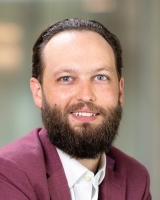
Dr. Jean-Christophe Bélisle-Pipon
Health Ethics Assistant Professor at Simon Fraser University's Faculty of Health Sciences
Jean-Christophe Bélisle-Pipon, PhD is a Health Ethics Assistant Professor at Simon Fraser University's Faculty of Health Sciences. He earned his doctorate in Bioethics from the Université de Montréal's Medical School. After that, he completed a three-year research fellowship at Harvard Law School's Petrie-Flom Center, which focuses on health law, biotechnology, and ethics.
Professor Bélisle-Pipon's work mainly deals with the ethical and societal questions raised by medical AI systems. He combines digital ethics research with real-world consensus-building work involving experts from different fields, including patients, government, industry, and health care officials. His goal is to understand and address the challenges that new health technologies bring to society. He focuses on health care ethics, particularly how new technologies impact health policies, responsible health care management, and how patients and the public can contribute to these discussions.
His aim is to address current ethical issues and think ahead about how new medical technologies might challenge our moral viewpoints. He wants to further a health care world that is ethical, inclusive, and responsive to these changes. Professor Bélisle-Pipon works directly with clinicians, computer and data scientists, policy-makers and end-users to ensure that by design health care and technology advancements are not only innovative, but also ethically sound and trustworthy. His research is mainly funded by the US National Institutes of Health.
He has also held significant roles in various organizations. He was on the Fonds de recherche du Québec – Santé (FRQS) Board of Directors (2017-2020) and was part of the late CIHR Standing Committee on Ethics (2021-2023). Currently, he is the Treasurer of the International Association of Bioethics (2019-).

Jeanna Pillainayagam
Master of Public Health student at McMaster University
Jeanna Pillainayagam is currently a Master of Public Health student at McMaster University. She received a BSc in Biology from the University of British Columbia (2023). Jeanna is a mental health advocate, with years of volunteer and research experience with organizations like Foundry and CMHA-BC. She has previously worked on mental health projects with groups such as Anxiety Canada and the University of Northern British Columbia as a speaker, writer, and facilitator. She is currently a member of the UBC Research for Mental Health Equity in the Asia-Pacific – Digital (REMAP-D) cluster’s International Lived Experience Advisory Panel (I-LEAP).
Jeanna is a proponent of increased youth engagement, particularly in health research, and strongly believes in the importance of incorporating lived experience into research and policy planning. She has served as a draft grant proposal reviewer for youth mental health and substance use researchers in the UBC Faculty of Medicine through the UBC Youth Research Advisory Panel. Jeanna currently sits on the Government of British Columbia's StrongerBC Young Leaders Council, where she engages in discussions with policymakers to help inform the provincial government’s policies and services. Based on her experiences in health research and policy-making contexts, Jeanna firmly believes that youth voices are often forgotten about in conversations around ethics. She has seen how this can lead to unethical practices in research that leave youth feeling tokenized, powerless, defeated, and can even break their trust in the research process. Jeanna hopes to bring these perspectives to the Advisory Committee on Ethics.
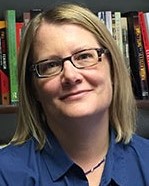
Dr. Kristin Burnett
Faculty member in the Department of Indigenous Studies at Lakehead University
Dr. Kristin Burnett is a faculty member in the Department of Indigenous Studies at Lakehead University. She was the Chair of the Research Ethics Board (2019-2022). Dr. Burnett also served as the first Program Coordinator of the newly established graduate Program in Social Justice Studies (2016-2020) and held a Lakehead University Research Chair in Indigenous Health and Well-Being (2014-2016). Dr. Burnett received a PhD in History from York University (2006), and both an MA (1999) and BA (1997) from the University of Calgary. As a historian in the social history of medicine, Dr. Burnett’s research and policy work investigates the systemic challenges, historical and contemporary, that people face accessing health care and social services, in particular she focuses on the roles played by settler colonialism and racism. Dr. Burnett has extensive experience working with and for Indigenous communities. Dr. Burnett is currently working on several externally funded research projects that look at the histories of colonial health care in northern Ontario, Indigenous food sovereignty, Indigenous data management, and the role personal identification like birth certificates plays in regards to the social determinants of health.
As Chair of the Research Ethics Board, Dr. Burnett has helped to co-develop guiding principles to navigate and ensure best practices in the constantly changing research landscape. For example, she has co-developed guidelines to inform and guide research with transgender communities and ethical consideration when working with diverse online communities. Of particular concern is the growing online harassment of researchers, especially women and racialized people, who are conducting research on hate groups and sexual and gender based violence.
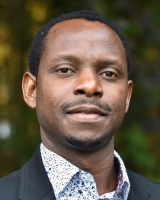
Dr. Samuel J. Ujewe
Senior Ethics Advisor, CIHR, Researcher and Specialist in Applied Ethics and Global Population Health
Dr. Ujewe is a researcher and specialist in applied ethics and global population health, especially population health ethics, justice and social determinants, infectious disease management, Indigenous health justice, inequities in health emergencies, cross-cultural bioethics, and global mental health. His research interests include integrating major social justice and equity theories with Indigenous principles and approaches to enhance equitable, responsible, and actionable health reforms for the wellbeing of under-served populations. He is widely published in global health ethics, including a co-edited book: “Socio-cultural Dimensions of Emerging Infectious Diseases in Africa: An Indigenous Response to Deadly Epidemics”.
He is a Senior Ethics Advisor, Canadian Institutes of Health Research (CIHR); Ethics Expert, European Commission; Fellow and Chair, Cultural, Anthropological, Social & Economic impact (CASE) Sub-Faculty within the Global Emerging Pathogens Treatment Consortium (GET-Africa); and Adjunct Assistant Professor, Arrupe Jesuit University. He has provided high level ethics consults to the Bill & Melinda Gates Foundation on health research and interventions in Sub Saharan Africa and Asia, and the WHO on Ebola and Covid-19 Research & Development. He has been involved in developing and drafting the WHO’s Global guidance framework for the responsible use of the life science, and its adaptation for use in African Countries.
Dr. Ujewe holds a PhD, University of Central Lancashire; Master of Health Sciences, University of Otago; and BA Honours, University of Zimbabwe. He has broad and diverse international experience, having lived, studied, and worked in several countries across the globe.
- Date modified: